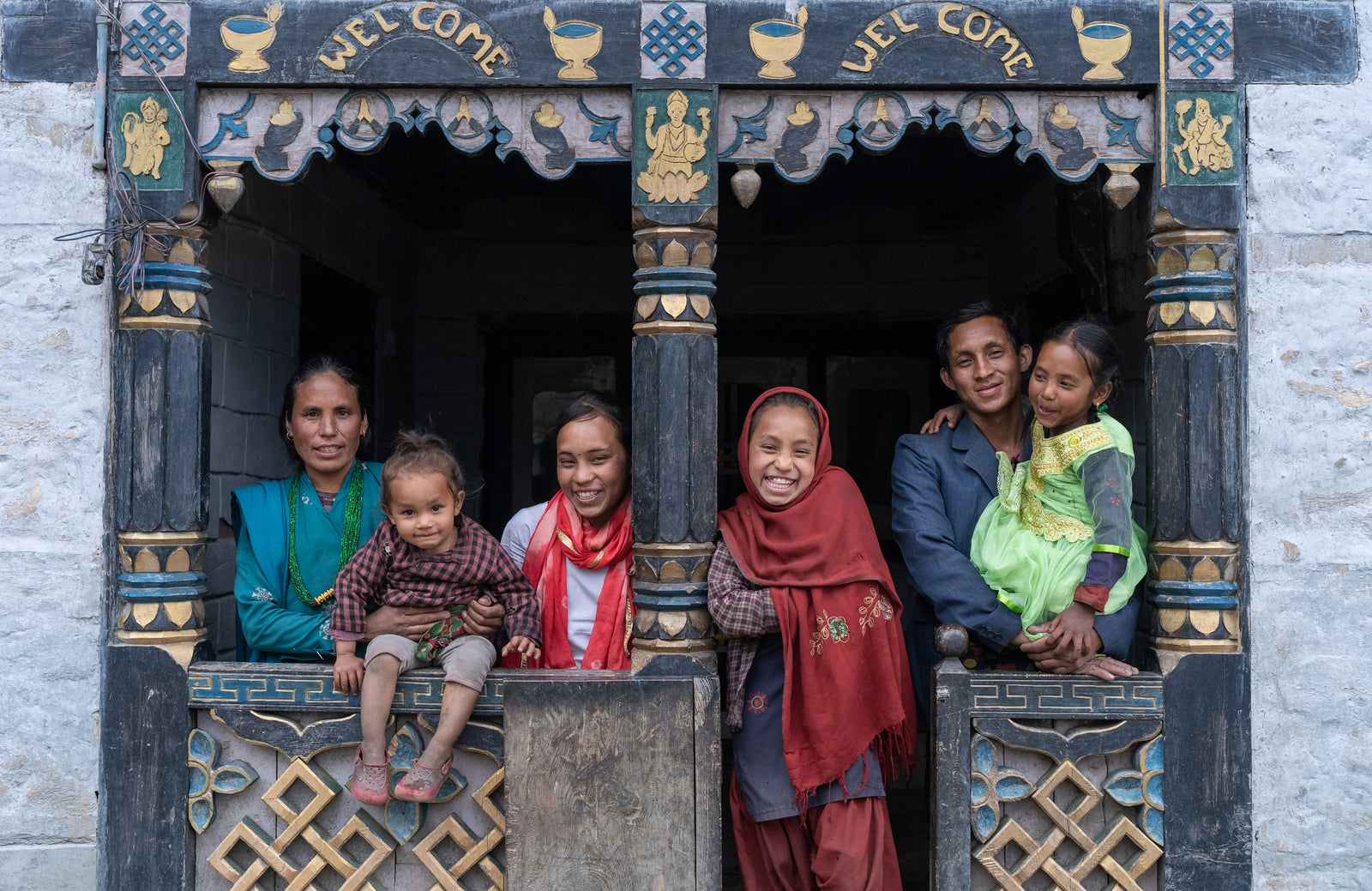Add description, images, menus and links to your mega menu
subjects
about us
BOOKS FOR CHANGE Sensibilisation au plaidoyer : éducation, mariage d'enfants et polygamie
Venue: Kagati Village, Nuwakot, Nepal
Date: 5th October 2018
Organized By: Fundación Soldiery TAI in collaboration with Circus Kathmandu, BOOKS FOR CHANGE and Himalayan Climate Initiative

Introduction:
Communities are increasingly recognizing child marriage and polygamy as a serious problem, both as a violation of girls' rights and as a hindrance to key development outcomes. Finding model solutions to address child marriage has been a challenge. While there has been an increase in such programs during the last decade, many are not well-documented, and even fewer are well-evaluated.
In this brief, we summarize a systematic review of child marriage prevention programs in Kagati Village where child marriage is extremely common between 14 and 18 years old children. 60% of the girls are married by the time they reach 14.
The village Kagati is known for its complex deeply embedded social issues and therefore we approached the preparation for the advocacy event with apprehension, strategic planning, and a solid network to create the best possible outcome.

We started our journey at 6:30 am from Kathmandu and reached around 9:30 the village Kagati. The program began with a “walkabout”, inviting the community members to visit the main program while performing different acts, stunts, juggles with loud enchanting music blaring from the music speaker. The aim of the "walkabout" was to raise curiosity and expectations of entertainment through circus acts without mentioning the awareness program so that the community members would become curious and visit the event. The Kagati community has seen many awareness programs in the past and we wanted them to realize that this was more than an awareness program. In addition, the circus team even went ahead in performing and teaching simple acts to some of the young kids in the village which they thoroughly enjoyed. The community members were drawn to the acts and many showed up for the event. After the "walkabout", we returned to the school with our jeep bringing along some curious and excited community members with us.
The main theater program began at 10:30 am in the ground of Bhawani Secondary School. The play was effective for many reasons. 1st., the act reflected the social context of Kagati. 2nd, it hit the core of the consequences of child marriages and polygamy and 3rd, the play showed clearly that a society will develop only with women`s empowerment and independence. Moreover, the dialogues were hard-hitting such as “the prolapse of the uterus due to child marriage that is life-threatening to women” that captivated the audience.

The play showed two stories. In one story, the consequences of child marriage were illustrated further leading to polygamy and in the other story girls education was given importance. Instead of succumbing to child marriage the daughter convinces her father to support her with education so she will be able to accomplish her dream of becoming a policewoman. She later returns to her own village Kagati to solve the issue of child marriage and polygamy. The play ended with the narrator asking the audience what the best possible solution would be. The audience strongly reinforced the role of education and women in bringing change to Kagati.
Approximately 300 students, 8 teachers, and 35-40 community members participated in the event . The ward commissioner of Kagati village was also present. At the end of the program, he professed in his speech that he will do his best to eradicate the social issues plaguing Kagati.
A lot of questions were raised in the feedback session and possible solutions are given by the community members, teachers, and NGO representatives:
“The reason for a rise in polygamy is the high percentage of girls in Kagati village and child marriage. Therefore, it is crucial to have a women based organization in the village. The forming of a women organization will encourage unity among women within the community. "women-led organization can solve the issue of polygamy" - Chakraman, Teacher, Bhawani Secondary School
“Lack of awareness, limited education, illiteracy, and parents pressure are the reasons for child marriage in Kagati. It is only through education that these social issues will come to an end." - Kavita, Teacher, Bhawani Secondary School
“To differentiate between right and wrong and take responsibility irrespective of the gender can bring a change in the society.” - Sapana, Administrative Coordinator, Circus Team
“Instead of preventing polygamy and child marriage, precaution is the cure. The young people and the community members should think about the consequences of child marriage and polygamy before marriage instead of regretting later.” - Shraddha, Hamri Bahini Organization.
“Preference of a son is the reason why families have a high number of children. One of the ways to solve the problem is to encourage education and to make parents aware of the consequences of child marriage. ”- Suman, Student, Class 10 ,Bhawani Secondary School.
Although it is difficult to measure an immediate impact of this advocacy program, the important aspects that we can take with us are that it led to meaningful discourses among students, teachers, community members, and NGOs representatives. Moreover, these discourses will encourage continuity of education and the importance of the role and participation of women in society. Furthermore, it will influence the communities decision making in terms of education, handling child marriage and polygamy.



